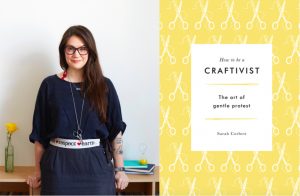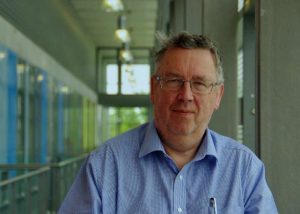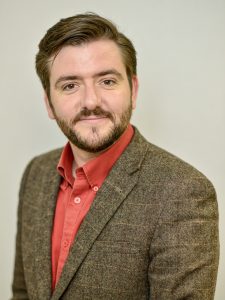Winchester Discovery Centre, Jewry St. 7.00 for 7.30pm
 Activism often conjures up quick transactional signing of petitions, clicktivism, loud and aggressive ways to demand justice. But if we want a world that is beautiful, kind and fair, shouldn’t our activism be beautiful, kind and fair? Award-winning campaigner and Founder of the global Craftivist Collective Sarah Corbett shows how to respond to injustice not with apathy or aggression, but with gentle, effective protest. Sarah Corbett set up the Craftivist Collective to facilitate and encourage this form of activism across the UK and around the world. She will be talking about her book ‘How To Be A Craftivist: the art of gentle protest’ a manifesto for a more respectful and contemplative activism; for conversation and collaboration where too often there is division and conflict; for using craft to engage, empower and encourage us all to be the change we wish to see in the world. She will explain her gentle protest principles with practical examples of her campaigns (including campaigns she’s won!) and stories as a burnout, introverted activist.
Activism often conjures up quick transactional signing of petitions, clicktivism, loud and aggressive ways to demand justice. But if we want a world that is beautiful, kind and fair, shouldn’t our activism be beautiful, kind and fair? Award-winning campaigner and Founder of the global Craftivist Collective Sarah Corbett shows how to respond to injustice not with apathy or aggression, but with gentle, effective protest. Sarah Corbett set up the Craftivist Collective to facilitate and encourage this form of activism across the UK and around the world. She will be talking about her book ‘How To Be A Craftivist: the art of gentle protest’ a manifesto for a more respectful and contemplative activism; for conversation and collaboration where too often there is division and conflict; for using craft to engage, empower and encourage us all to be the change we wish to see in the world. She will explain her gentle protest principles with practical examples of her campaigns (including campaigns she’s won!) and stories as a burnout, introverted activist.
Sarah’s Bio
Sarah Corbett is an award-winning campaigner. She grew up in a low-income area of the UK into an activist family and has worked as a professional campaigner for a decade most recently with Oxfam GB. She set up the global and award-winning Craftivist Collective in 2009 providing products and services to do craftivism using her ‘gentle protest’ approach. She works with arts institutions, the charity sector, academic as well as unexpected collaborations such as with organisations Tatty Devine & Secret Cinema and regularly gives talks around the world. Her book “A Little Book of Craftivism’” was released October 2013 and is on it’s second print run. Her book “How To Be A Craftivist: the art of gentle protest” was out October 2017.






 Hardly a day goes by without the publication of a story in the press informing us that by 2030 over 30% of UK jobs could be replaced by robotic systems. Historically the introduction of technology has enhanced the experience of the workforce. The introduction of advanced robotics however is associated with the workforce polarization into either high-skilled, highly-paid or low-skilled, poorly-paid employment with the loss of mid-skilled jobs. The presentation will go behind the hype and look at the current state of robotic systems, and how its integration with artificial intelligence has led to this situation.
Hardly a day goes by without the publication of a story in the press informing us that by 2030 over 30% of UK jobs could be replaced by robotic systems. Historically the introduction of technology has enhanced the experience of the workforce. The introduction of advanced robotics however is associated with the workforce polarization into either high-skilled, highly-paid or low-skilled, poorly-paid employment with the loss of mid-skilled jobs. The presentation will go behind the hype and look at the current state of robotic systems, and how its integration with artificial intelligence has led to this situation.

 This talk is a fine introduction into the age-old philosophical debate as to whether we have free will, or whether we live determined lives.
This talk is a fine introduction into the age-old philosophical debate as to whether we have free will, or whether we live determined lives. Conspiracy theories are everywhere – and, arguably, always have been. What influences us to believe or reject them? Why do some events give rise to more conspiracy theories than others? What does the prevalence of conspiracy theories say about us as a society? And how is The Simpsons like an ancient Babylonian sheep’s liver? This whirlwind tour through conspiracy theory psychology will focus particularly on how suspicion, paranoia, and ambiguity help us to make sense of an uncertain world.
Conspiracy theories are everywhere – and, arguably, always have been. What influences us to believe or reject them? Why do some events give rise to more conspiracy theories than others? What does the prevalence of conspiracy theories say about us as a society? And how is The Simpsons like an ancient Babylonian sheep’s liver? This whirlwind tour through conspiracy theory psychology will focus particularly on how suspicion, paranoia, and ambiguity help us to make sense of an uncertain world.